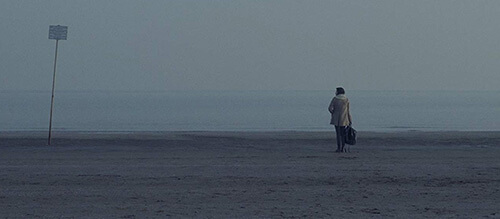Venezia (2019) Review
Venezia (2019)
Director: Rodrigo Guerrero
Screenwriter: Rodrigo Guerrero
Starring: Paula Lussi, Margherita Mannino, Alessandro Bressanello
Venezia, the latest film from The Third One (2014) and The Winter of the Odd One Out (2010) screenwriter-director Rodrigo Guerrero, which follows the exploration of the city of Venice by a newly-wed turned unexpected widow, is a thoughtful cinematic piece; cinematic being the operative word to describe a film developed to heavily lean into the power of its visual imagery, often without regard for the use of spoken or written language.
The power of this particular Guerrero project comes in the director’s ability to capture its titular location, Venice, in all of its beauty and all of its normalcy. Indeed, the decision to helm the project within the historic, remarkable and tourist-driven city encapsulates the good and bad of human endeavour side by side, the positives (eg. architectural innovation, timeless beauty and kindness) and negatives (eg. the pursuit of money, pollution and seclusion) of our collective legacy presented with a non-judgemental eye, as if a passing glance. At just 1 hour and 15 minutes, it should be assumed, within context of the rest of the picture, that the run-time was judged to be a method of driving this home.
Given the importance of everything within the screen in Venezia, it can be correctly assumed that the cinematography of the picture comes to hold a lot of weight, and Gustavo Tejeda’s work in this regard is clearly the picture’s most recognisable aspect.
Venezia’s presence as a piece of screen art, right down to its 16:9 aspect ratio, is reinforcing of the snapshot nature of the piece, the frame coming to encapsulate the unremarkable photographs that accompany both our profound and less-than profound moments, or more universally the history of each of our contributions to the annuls of time. A steady-cam roams the streets in the point of view of the picture’s central protagonist in a method that, unlike the work of great steady-cam cinematographers like Emmanuel Lubezki, aims not to gift the piece an ethereal quality but instead root it within the subjective perspectives of its audience, the camera mimicking the way the eye views objects, locations and landmarks, awkward glances from passers by included.
It is here where the picture’s decision to deny access to particular subtitled translations leaps beyond simply offering a view of the world from the protagonist’s perspective and into something altogether more universally accessible. This decision accompanies the camera in moulding you into the lead role, your voyeuristic take on the streets of Venice asking you as many questions as it answers, all the while encouraging you to seek out more. The elements of the story that are audible, that are translated, are the product of interactions with strangers, some kind and some not so much, the nature of humanity once again forced front and centre for the voyeuristic eye to analyse; the camera once again not offering an opinion, simply demanding one.
The performances that are present in the film, most notably that of the lead actress who occupies most of the character-focused screen time, are remarkable in their realism, with the previously unknown Paula Lussi playing her role of grieving widow with an intrinsic sadness that pours out of her eyes. Guerrero himself must be complimented for his achievements in this respect, his choices regarding appearance, when and how to shoot the character and his assistance at developing physical traits within the performance, notably pushing for her to be quiet in conversation, moulding someone entirely believable and importantly sympathetic within her grief.
In closing, Venezia is a picture that has an “international child” feeling to it, like we are all children of a higher power (whether that be answered by science or religion) remarkable only to those we impact through kindness and otherwise lost to time like the millions who’ve walked the famous stone floor of St. Mark’s Square over the centuries. This is a film that will sit with you long after it has finished.
20/24
[DISPLAY_ULTIMATE_SOCIAL_ICONS]


